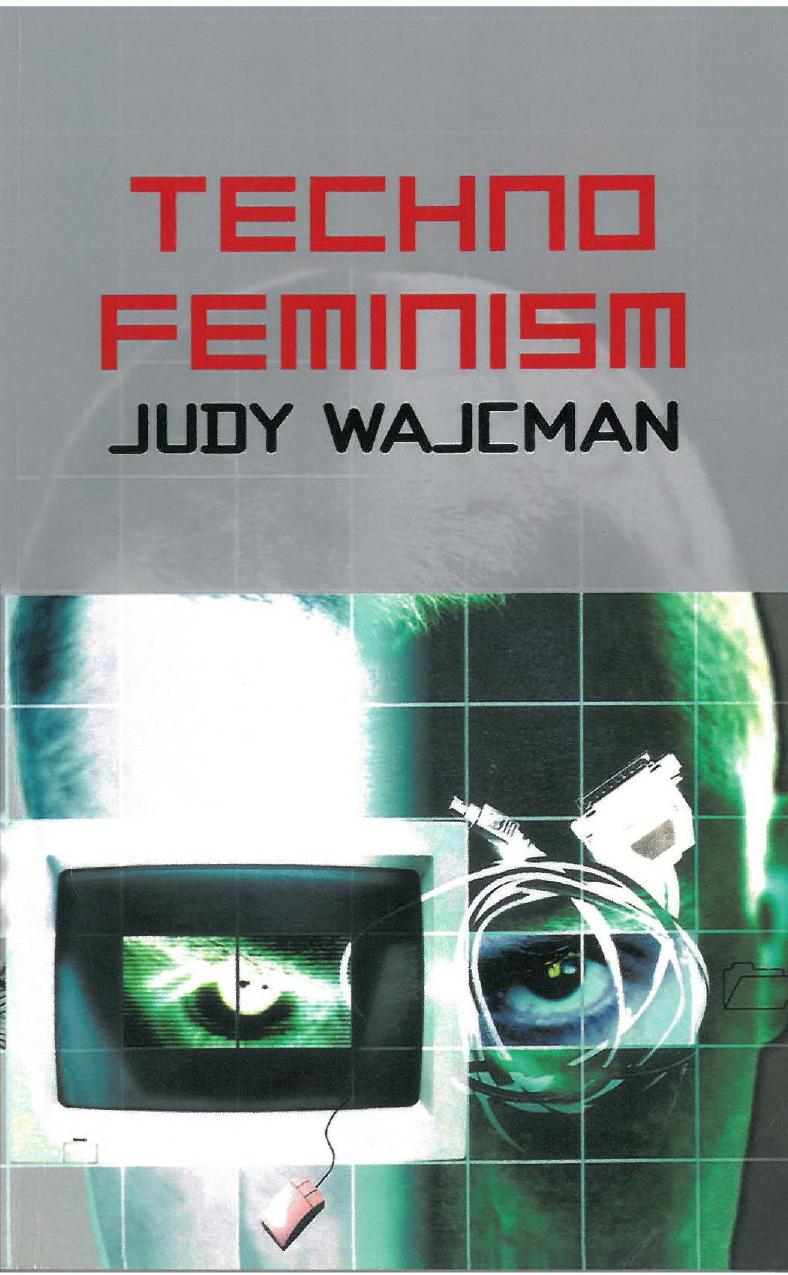TechnoFeminism by Judy Wajcman

Author:Judy Wajcman
Language: eng
Format: epub, pdf
Publisher: Polity Press
Published: 2011-04-22T00:00:00+00:00
Technology as Freedom
Much of the pessimistic critical literature on science and technology has seen technology in a deterministic way, as potentially dehumanizing and running out of control. Plant offers a twist on this theme. She celebrates cybertechnology out of control because, for her, out of control signifies freedom from male control. The metaphors by which she builds her case are, however, weakly related to the social reality of new technology relations, and the instances she cites are misconstrued. For example, her history of womenâs involvement in technological developments, such as the typing pool and the telephone exchange, are in fact examples of womenâs subordination. She gestures towards recognition that the interconnectivity of the Internet is a product of global capitalism that enables new forms of production and exploitation. Yet her apparent awareness of womenâs exploitation does not stop her from seeing such technology as necessarily empowering women.
A more consistent version of this position would be that technology itself is plastic, and therefore the same technology can have contradictory effects, as the social relations and context of their use are all important. But Plant does not follow this path. Instead, she claims that womenâs affinity with digitalization means that it is inherently freeing. For Plant, there is a direct causal relationship between communication technologies and the particular cultural forms they come to be associated with. Her homage to the Internet closely echoes Marshall McLuhanâs famous aphorism, âThe medium is the messageâ, and she acknowledges his legacy.25 Like McLuhan, she fails to distinguish between technical inventions (the digitalization of data), the socially instituted technology (the Internet), and its attendant cultural forms (e-mail, web sites, interactive multimedia, etc.).26 As a result, the crucial influence of media corporations and communications institutions, within which technologies develop and which circumscribe their use, is ignored.
Plantâs abstract theory of the Internet thus reproduces McLuhanâs technological determinism, and can be criticized in precisely the terms that Raymond Williams applied to McLuhan in Television: Technology and Cultural Form.
It is an apparently sophisticated technological determinism which has the significant effect of indicating a social and cultural determinism: a determinism, that is to say, which ratifies the society and culture we now have, and especially its most powerful internal directions. For if the medium â whether print or television â is the cause, all other causes, all that men [sic] ordinarily see as history, are at once reduced to effects. Similarly, what are elsewhere seen as effects, and as such subject to social, cultural, psychological and moral questioning, are excluded as irrelevant by comparison with the direct physiological and therefore âpsychicâ effects of the media as such.27
As Williams so forcefully points out in relation to McLuhan, the political consequence of this avant-gardist celebration of the ânew mediaâ is paradoxically to legitimate the existing social order. Plant is similarly exposed as politically conservative. If digital technology is inherently feminine, whoever controls or uses it, then no political action is necessary. Cyberfeminism may appear to be anarchist and anti-establishment, but, in effect, it requires for its performances all the latest free-market American capitalist gizmos.
Download
This site does not store any files on its server. We only index and link to content provided by other sites. Please contact the content providers to delete copyright contents if any and email us, we'll remove relevant links or contents immediately.
The Rules Do Not Apply by Ariel Levy(4969)
On the Front Line with the Women Who Fight Back by Stacey Dooley(4873)
The Lonely City by Olivia Laing(4801)
Bluets by Maggie Nelson(4556)
The Confidence Code by Katty Kay(4260)
Three Women by Lisa Taddeo(3433)
Not a Diet Book by James Smith(3426)
Inferior by Angela Saini(3314)
Confessions of a Video Vixen by Karrine Steffans(3308)
A Woman Makes a Plan by Maye Musk(3254)
Pledged by Alexandra Robbins(3178)
Wild Words from Wild Women by Stephens Autumn(3153)
Nice Girls Don't Get the Corner Office by Lois P. Frankel(3044)
Brave by Rose McGowan(2823)
Women & Power by Mary Beard(2767)
Why I Am Not a Feminist by Jessa Crispin(2760)
The Girl in the Spider's Web: A Lisbeth Salander novel, continuing Stieg Larsson's Millennium Series by Lagercrantz David(2721)
The Clitoral Truth: The Secret World at Your Fingertips by Rebecca Chalker(2720)
I Who Have Never Known Men by Jacqueline Harpman(2669)
